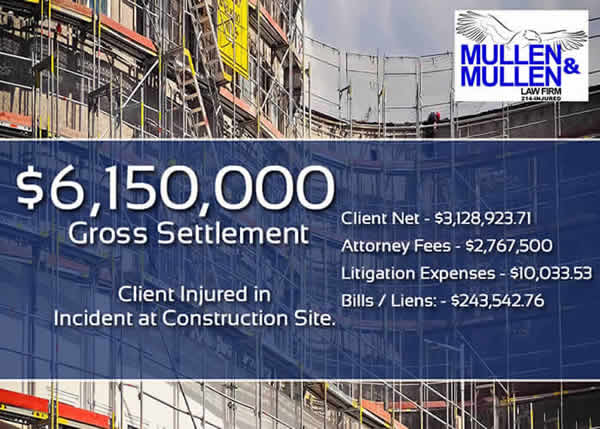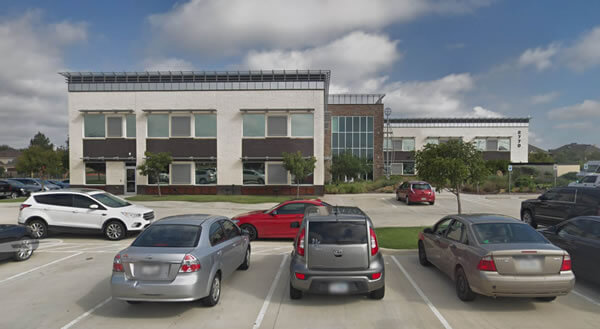
About Work Injury Cases
Do You Find Yourself Grappling With The Intricacies Of A Worker’s Compensation Or Personal Injury Claim?
Worker’s compensation and personal injury claims operate under distinct mechanisms. In either scenario, your employer can be held accountable for injuries sustained on the job.
Interestingly, Texas stands alone as the sole state in the United States where companies above a certain size aren’t mandated to carry worker’s compensation.
Surprising, but true!
The silver lining is that it’s typically more straightforward to recover financial compensation from companies not subscribing to Texas Workers’ Compensation. Legal defenses available to “subscribers” are often unavailable to “non-subscribers.” The Texas legal system leverages this to encourage employers to provide Workers’ Compensation to their employees.
While approximately 81% of Texas employees are covered, a significant portion remains unprotected. Unfortunately, the workers’ compensation system in Texas tends to favor businesses over workers.
Here’s how to discern whether you have a worker’s comp or personal injury claim:
Ascertain Your Workplace’s Worker’s Comp Subscription Status
Determining this can be trickier than it seems. Some employers may present as having workers’ compensation when, in reality, they only have insurance resembling it. Contact the Texas Department of Insurance Division of Workers’ Compensation to officially confirm your employer’s subscription status.
Subscriber Status: Worker’s Comp Claim
If your employer subscribes, filing a personal injury claim against them is not an option. Your sole recourse is a workers’ compensation claim, unless gross negligence led to the worker’s death. If a third party, rather than your employer, is responsible for the injuries, you can still file a workers’ compensation claim and maintain the right to file a third-party action.
Challenges With Worker’s Comp
Compensation through workers’ compensation often falls short of covering actual damages, and the process can be arduous. A workaround is available if a third party, like a manufacturer of defective equipment, is involved. In such cases, you can file a personal injury claim against the third party while concurrently filing a workers’ comp claim.
Non-Subscriber Status: Personal Injury Claim
If your employer (or a co-worker) is a non-subscriber and negligently causes your injuries, you have a personal injury claim. Interestingly, this situation can be advantageous, as many legal defenses available to employers are forfeited.
Take Swift Action – Promptness Is Crucial In Work Accident Claims!
The sooner you take action, the better. Jurors are inclined to believe that individuals with genuine claims act promptly, making it more convincing to establish the validity of your case. Additionally, essential evidence required for a successful claim may be lost or compromised the longer you delay. If you’ve sustained a workplace injury, act promptly to safeguard your rights. Contact Mullen & Mullen today!
Our legal team boasts 40 years of experience in securing compensation for Texans injured on the job.
If you’ve experienced a workplace injury in Texas, our Frisco work accident attorneys may be able to assist you in recovering damages. Mullen & Mullen Law Firm has been dedicated to helping Texans injured at work for over four decades.
Mullen & Mullen Law Firm can likely aid you in seeking damages if your injury resulted from your employer’s (or a co-worker’s) negligence, and the company does not subscribe to benefits.
Furthermore, if your injuries were caused by the negligence of a third party unrelated to your employer (or a co-worker), we can provide assistance, irrespective of your employer’s subscription status. Additionally, if your loved one suffered a fatal workplace accident due to gross negligence, we can help, even if the employer is/was a subscriber.
Contrary to common misconceptions, you may still file a work accident claim if you were injured on the job in certain circumstances. For instance:
- Our attorneys can guide you if a loved one’s workplace fatality resulted from the gross negligence of their employer, even if the employer subscribes to the Texas Workers’ Compensation Act.
- We can also assist if your injuries occurred at work or during employment due to the negligence of a party other than your employer.
- Our attorneys are available to help if your injuries at work were a result of negligence by your employer or co-worker in the case of a non-subscriber to benefits.
Determining your eligibility to file a claim against your current or former employer is a nuanced process based on multiple factors. For more information on on-the-job injuries and potential claims, click on any link below to explore specific sections or call us now for a complimentary consultation and valuable advice at (214) 529-3476.
THE IMPACT OF SUBSCRIBER VS. NON-SUBSCRIBER WORK ACCIDENT CLAIMS
Can You Pursue A Claim If The Company Provides Workers’ Compensation Benefits And Your On-The-Job Injury Results From Negligence?
Likely not. If your employer offers Workers’ Compensation benefits, they are classified as a “Subscriber” to the Texas Workers’ Compensation Act. In most cases where the company is a Subscriber and negligence is involved, your primary legal recourse is to file a Texas Workers’ Compensation claim.
Important to note: If your loved one’s workplace is a “Subscriber,” you can still file a wrongful death case if their death resulted from the company’s gross negligence.
Also, keep in mind: You can file a wrongful death case against your loved one’s employer even if they are a “Subscriber” if the fatality resulted from the company’s gross negligence. Additionally, if you were injured on the job or during the course and scope of your employment, but your injuries were caused by a third party (not your employer or a co-worker), you can file a work accident claim against the third party, even if your employer subscribes to the Texas Workers’ Compensation Act.
Can You Pursue A Claim If The Company Does Not Provide Workers’ Compensation Benefits And Your On-The-Job Injury Results From Negligence?
Likely so. If the company does not offer Workers’ Compensation benefits, they are categorized as a “Non-Subscriber” to the Texas Workers’ Compensation Act, and you generally have the right to file a work accident claim against them.
Crucial to remember: If your employer is a Non-Subscriber to the Texas Workers’ Compensation Act, you still need to establish that the company or a co-worker was negligent in causing your injuries. Winning is not automatic; you must demonstrate wrongdoing by your employer or co-worker.
Also important: The State of Texas encourages companies to provide Workers’ Compensation benefits to employees. Consequently, if a company is a Non-Subscriber to the Texas Workers’ Compensation Act, they face penalties by being denied several common law defenses, which would typically be available to them. These defenses include:
Assumption Of The Risk:
If the company is a Non-Subscriber, they cannot argue that you assumed the risk of injury or death associated with your employment.
Contributory Negligence:
If your employer is a Non-Subscriber, they cannot claim that you were guilty of comparative negligence. However, they can argue that you were solely responsible for your injuries.
Fellow Servant:
In the scenario where the company is a Non-subscriber to the Texas Workers’ Compensation Act, they are prohibited from using the defense that your injury or death resulted from the negligence of a co-worker.
How Can Our Attorneys Assist?
Mullen & Mullen Law Firm has represented numerous clients injured on the job when their employers did not provide Workers’ Compensation coverage. Our attorneys have skilled accident investigators with the expertise to gather the necessary evidence to build and win your case. If required, we are not hesitant to engage Certified Safety Experts and OSHA Experts to establish liability against your employer. This type of case demands careful strategy, and Mullen & Mullen can provide the advantage you need.
Are There Situations Where The Distinction Between Subscriber And Non-Subscriber To The Texas Workers’ Compensation Act Doesn’t Matter?
Indeed. For instance, if you were injured at work or during the course and scope of your employment, but the injuries resulted from someone other than your employer or co-worker, you have the freedom to pursue personal injury damages against the negligent third party.
Remember: If your loved one was fatally injured at work due to the gross negligence of their employer, you can pursue a personal injury case against the employer, regardless of their Subscriber or Non-Subscriber status under the Texas Workers’ Compensation Act.
What Are Some Examples Illustrating The Impact Of Subscriber Vs. Non-Subscriber Status On Your Claim?
Consider the examples below to better comprehend how your employer’s classification as a Subscriber or Non-Subscriber may affect your legal rights.
Example 1
You are a delivery driver for a company that is a Subscriber to the Texas Workers’ Compensation Act. While making a delivery in a company van, you are rear-ended by a negligent driver. You can file a Workers’ Compensation Claim as your injuries occurred during the course and scope of your employment. Additionally, you can file a personal injury claim against the at-fault driver because your injuries resulted from the negligence of a third party.
Example 2
Working in a warehouse, you operate a forklift for a company that is a Subscriber to the Texas Workers’ Compensation Act. A co-worker’s inattention leads to a collision with your forklift, causing you to fall and sustain injuries. You can file a Workers’ Compensation Claim as your injuries occurred during the course and scope of your employment. However, you cannot file a personal injury claim because your injuries resulted from the negligence of your employer and/or co-worker.
Example 3
Using similar facts to the previous example, but with the company as a Non-Subscriber to the Texas Workers’ Compensation Act. Since your employer does not offer Workers’ Compensation benefits, you are entitled to file a personal injury claim against the company for the negligent actions of your co-worker and/or the company itself.
NEGLIGENT THIRD-PARTIES IN WORKPLACE INJURY CLAIMS
If Your Workplace Provides Workers’ Compensation Benefits, Can You Still Initiate A Personal Injury Action Against A Negligent Third Party Responsible For Your Injuries?
Yes, you can. If the company is a Subscriber and offers Workers’ Compensation benefits, you have the option to pursue BOTH a Workers’ Compensation claim AND a personal injury claim.
Remember: If the company provides Workers’ Compensation benefits, you typically cannot pursue a personal injury claim against your employer or co-worker, even in cases of negligence. However, you can pursue a personal injury claim if your injuries were caused by a negligent third party.
Example 1
Imagine working at an assembly plant where your workplace provides Workers’ Compensation benefits. If a co-worker, not paying attention, collides with you and causes injuries, you cannot file a personal injury action against your employer. However, if a UPS employee enters the plant to deliver a package and, due to negligence, collides with you, you CAN pursue a personal injury claim as the UPS employee is a negligent third party.
Example 2
Consider working for Best Buy’s Geek Squad, with Best Buy offering Workers’ Compensation benefits. While driving to an installation, another driver runs a red light and T-Bones your VW Beetle. You CAN file a Workers’ Compensation claim since the injury occurred in the course and scope of your employment with Best Buy. Additionally, you can ALSO file a personal injury claim with the liability insurance company of the at-fault driver.
ESTABLISHING LIABILITY AGAINST AN EMPLOYER IF HURT ON THE JOB
If Your Workplace Does Not Offer Workers’ Compensation Benefits And You Sustain An Injury At Work, Does This Automatically Guarantee A Victory In Your Personal Injury Case?
No. If your employer is a Non-Subscriber, you still need to demonstrate that the employer or a co-worker was negligent, and that this negligence directly led to your injuries. In essence, you must prove that your employer or co-worker engaged in wrongful conduct.
An Illustration
Imagine your employer is a Non-Subscriber and does not provide Workers’ Compensation benefits. Your workplace supplies you with a back brace for lifting heavy items, and your job entails lifting at least 50 pounds. While lifting a 15-pound piece of equipment, you experience an unexpected injury and strain a back muscle. It is unlikely that the employer would be deemed negligent, as they provided a back brace, and 15 pounds was below the maximum weight requirement for lifting.
How Do You Establish Liability Against Your Employer?
Establishing liability against your employer can be achieved in numerous ways. To succeed in your case, you must demonstrate that your employer was negligent, meaning they failed to act as a reasonably prudent company would under similar circumstances. You need to show that your employer’s actions, or lack thereof, resulted in your injury.
In What Scenarios Might Your Workplace Be Considered Negligent For Your Injuries?
Keep in mind that injuries can occur in various ways, and multiple factors may contribute to them. The following examples are not exhaustive, and if you have any uncertainty about whether your employer’s actions (or lack of action) played a role in your injuries, seek a free consultation from a personal injury lawyer as soon as possible.
Examples:
Negligent Supervision:
Your employer may be liable if your injuries resulted from negligent supervision of your co-workers or inadequate supervision, such as being left alone and unsupervised while learning a new skill like welding.
Negligent Training:
Your employer may be liable if injuries occurred due to negligent training of you or a co-worker, especially if insufficient training led to the injuries.
Failure to Provide Proper Equipment:
If your job requires regular lifting of 50 pounds and your employer did not supply a weight belt, you could argue negligence for failing to provide necessary safety equipment.
Failure to Implement or Enforce Policies and Procedures:
Your employer might be liable if they did not establish proper policies and procedures, or if they had them but failed to enforce them consistently.
Failure to Warn of Known Dangers:
If your employer was aware of dangerous activities or areas on the premises and did not warn you, they could be held liable, among other possibilities.
ABOUT CLAIMS INVOLVING DEATH AND GROSS NEGLIGENCE
Can Your Family Pursue A Wrongful Death Action If Your Loved One Was Fatally Injured Due To Their Employer’s Gross Negligence?
Yes, regardless of whether your loved one’s employer is a Subscriber or Non-Subscriber, your family can indeed file a personal injury claim against the employer.
Remember: If your loved one’s death at work resulted from the ordinary negligence of a subscribing employer, the exclusive remedy will be through the workers’ compensation system.
How Can Our Attorneys Assist?
Our legal team is willing to invest the necessary resources to secure experts who can establish gross negligence, enabling the potential recovery of punitive damages.
If Your Loved One Suffered Catastrophic Injuries Due To Their Workplace’s Gross Negligence, Are Punitive Damages Potentially Recoverable?
No, punitive damages are only recoverable if the employer was grossly negligent and the injuries resulted in death.
MULTI-EMPLOYER WORK SITES
What Constitutes A Multi-Employer Work Site?
A multi-employer work site is best exemplified by a construction project, where multiple companies may have their employees at the same work site. For instance, a general contractor may hire sub-contractors, including electricians, plumbers, roof experts, flooring experts, etc.
Remember: If you were injured due to a co-worker’s negligence and your employer is a Subscriber, filing a Workers’ Compensation claim is likely your sole remedy for the sustained injuries. However, if you were at the work site as an employee of ABC Electricians and were injured due to the negligence of an employee of NOP Flooring, you would be eligible to file both a Workers’ Compensation claim and a personal injury claim against NOP Flooring since a negligent third party was responsible for your injuries.
Remember: The general contractor and/or entity that owned the work site could bear liability if they failed to properly supervise the work site.
GETTING MEDICAL TREATMENT FOR WORK-RELATED INJURIES
If You Sustained An Injury At Work, Are You Entitled To Necessary Medical Treatment?
Possibly. If your employer subscribes to benefits, you will likely receive some medical treatment. It’s important to note, however, that many employers direct injured workers to medical providers that may prioritize a swift return to work. If your employer doesn’t provide Workers’ Compensation benefits, they may still guide you to a regular provider in an attempt to minimize their exposure.
Remember: Clinics recommended by employers often have a pro-employer stance and may advocate for your return to work after a limited number of therapy sessions.
How Can Our Attorneys Assist?
Our Frisco work accident attorneys have established a comprehensive network of medical providers dedicated to serving injured workers. These providers prioritize your health and will not release you back to work unless it’s deemed safe. Our network includes various specialists such as medical doctors, surgeons, chiropractors, physical therapists, MRI facilities, neurologists, surgical clinics, hospitals, counselors, and more.
Concerned About The Cost Of Medical Treatment?
Facing mounting medical bills can be challenging when you’re injured at work. We collaborate with medical providers willing to defer billing until the conclusion of your work accident claim. This ensures you have no initial out-of-pocket expenses for quality care, allowing you to focus on recovery without financial stress.
Should You See The Workers’ Compensation Doctors?
Generally, yes. In many cases, you may have the right to file both a Workers’ Compensation claim AND a personal injury claim. It is advisable to attend medical appointments with the “company doctor” to avoid potential complications with your workers’ compensation claim due to non-compliance.
QUALIFYING FOR A LAW LOAN
Wondering If You Qualify For A Law Loan To Cover Expenses During Your Recovery?
Yes, you could be eligible. Law loan companies assess the risk of your case to determine whether they can provide funds in exchange for an assignment in the settlement proceeds of your case.
How Can Our Attorneys Help?
Many law loan companies require representation by a lawyer for a loan application. We have strong relationships with major law loan companies, and some even cap the amount of interest they charge our clients at Mullen & Mullen.
COMPENSATORY DAMAGES IN WORKPLACE INJURY CLAIMS
What Types Of Compensation Might Be Accessible If Your Workplace Is Not Covered By The Texas Workers’ Compensation Act?
In instances where your employer lacks coverage, and you sustain injuries at work due to the negligence of the company or a co-worker, you have the right to seek damages against the company. Potential recoverable damages encompass past and future mental anguish, past and future physical impairment, past and future pain and suffering, loss of past earnings, loss of future earning capacity, recovery of past medical expenses, and any necessary future medical expenses.
Note: If your work-related injuries resulted from the negligence of a third party (other than your workplace or co-worker), all the aforementioned damages are also applicable.
What Damages Are Potentially Available If The Employer Was Grossly Negligent, Leading To The Death Of The Injured Worker?
Answer: Punitive damages.
WORKERS’ COMPENSATION LIENS
Can The Workers’ Compensation Carrier Impose A Lien On The Settlement Proceeds From A Negligent Third-Party Responsible For Your Injuries?
Yes, it is likely. The Workers’ Compensation carrier’s ability to recover a share of your third-party settlement is known as the right of subrogation.
Do Workers’ Compensation Carriers Negotiate Their Lien Amount Or Agree To Accept Less Than The Full Amount Owed?
Yes, in most cases, carriers will consider reducing their lien, sometimes out of obligation (e.g., if you are represented by an attorney without their own legal counsel, they may reduce the lien by 1/3). While not mandatory, carriers may agree to a reduction to ensure partial recovery of their entitled funds.
How Can Our Attorneys Assist?
Our team is proficient in negotiating down Workers’ Compensation liens, ensuring our clients retain more settlement funds. Our Frisco work injury attorneys regularly engage with major subrogation recovery organizations.
What Reduction Can You Generally Expect If Your Injuries Resulted From A Negligent Third Party, And The Workers’ Compensation Carrier Does Not Retain Legal Counsel To Pursue Damages Against The At-Fault Party?
Typically, you may be entitled to reduce the workers’ compensation lien by 1/3. For instance, if the carrier paid $150,000 in indemnity expenses, they might agree to lower the lien to $100,000.
What If Your Employer Terminates You After A Job-Related Injury?
If you’re abruptly terminated following a workplace injury, and you suspect retaliation, here’s what to do.
Being terminated due to a job-related injury is unacceptable and may constitute retaliatory discharge, leading to legal action against the company.
You cannot be fired for sustaining a job-related injury, and any attempt by your employer to claim otherwise may be considered retaliatory discharge, subjecting them to legal consequences.
While employers may try to justify terminations for performance or financial reasons, a personal injury attorney can help you connect with an employment law attorney to explore legal options if you’ve been a victim of retaliatory discharge.
Our Frisco work injury attorneys offer free consultations to discuss your case. You only pay if we win, and the worst-case scenario is finding out your claim may not be viable.
CONTACT US FOR A FREE CONSULTATION
Call (214) 529-3476 to talk to a Frisco work injury attorney right now. We won’t put any pressure on you to hire us on the spot. Simply learn how we’ll approach your case and get some excellent free advice. Make your decision only when you feel 100% ready. Do remember though, that the Texas statute of limitations gives you just 2 years from the date of your accident to file a claim.
We’ll come to your home or hospital room if it makes it easier on you! Phone and Zoom consultations are also available. You can call us, or use the form or chat feature on this page to request a free consultation now.
Seriously Hurt? We’ll Come to You!
FRISCO OFFICE
Mullen & Mullen Law Firm in Frisco, TX
2770 Main St #258
Frisco, TX 75033
(214) 529-3476










 If you were injured in a work accident, our skilled Frisco attorneys fight tenaciously to ensure the maximum available settlement while offering you the lowest contingency fee. We handle your case the way we would want our own case handled.
If you were injured in a work accident, our skilled Frisco attorneys fight tenaciously to ensure the maximum available settlement while offering you the lowest contingency fee. We handle your case the way we would want our own case handled.







